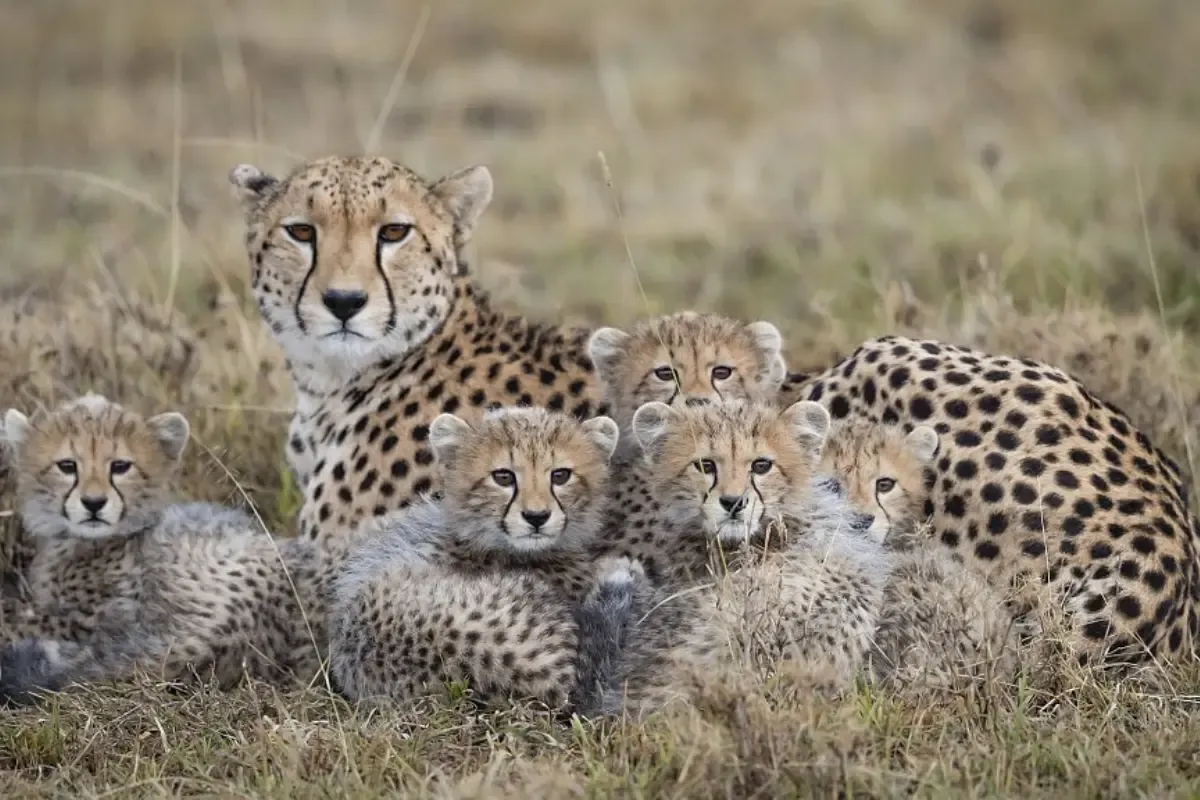A recent study raised concerns about the environmental justice implications of Project Cheetah, India’s initiative to introduce African cheetahs into Kuno National Park (KNP) in Madhya Pradesh. The study argues that the translocation of African cheetahs has failed to consider ethical concerns and poses significant social and species justice issues.
Project Cheetah raises ethical concerns
The study highlighted challenges with the project. It noted that African cheetahs struggle to adapt to climate, prey species, and habitat in India. Additionally, there’s a potential for human-wildlife conflict among communities unaccustomed to cheetahs.
The study highlighted a lack of research on animal welfare in the legal trade of wild animals. It urged conservationists to consider the social and animal welfare implications of translocation projects.
The researchers examined the project through the lenses of distributive, procedural, and recognition justice, considering the impact on marginalised people and non-human species. They reviewed reports on translocating Asiatic lions and African cheetahs to KNP and found shortcomings in the methodology.
According to the study, KNP was chosen for the reintroduction of Asiatic lions, and between 1999 and 2001, 5,000 people from 24 villages were displaced. However, the reintroduction never happened due to opposition from the Gujarat government. Later, Indian authorities decided to introduce African cheetahs instead.
The study criticised the methodology for assessing sites for cheetah introduction, noting surveys relied on visual assessments of interviewees’ age, sex, attire, and possession of ornaments or wristwatches rather than directly questioning them.
The study stated that this approach led to distributive injustice, as the socio-economic impacts and benefits of conservation efforts were unequally distributed. It emphasised that the decision-making process failed to recognise diverse values and didn’t consider the potential hardships faced by historically burdened communities.
Study criticises poor community planning
The study criticised the lack of social surveys in a recent report for an Indian Supreme Court case. It noted unclear human activity assessments near potential cheetah introduction sites, with some areas discussing industrial pressures and others ignoring them. The researchers stated that the Cheetah Action Plan focused on KNP due to previous village relocations but failed to prepare the remaining communities for cheetahs.
The study challenged the assumption that India’s predominantly Hindu culture ensures tolerance toward animals, reducing human-wildlife conflict. It argued that human-animal relationships in India are complex and vary across communities. The researchers stated that it’s unrealistic to assume local populations would tolerate the risks posed by cheetahs.
Concerns were raised about the welfare of the African cheetah species. The study pointed out that African cheetahs are already under pressure, with only around 6,500 mature individuals left in the wild. It questioned the ethics of translocating a vulnerable species across continents, highlighting that cheetahs are highly sensitive to stress, especially when captured and moved over long distances.
The study noted that KNP cheetahs have undergone over 90 chemical immobilisations, raising concerns about their long-term well-being. It also pointed out ethical concerns about releasing live prey in enclosed areas, referring to a South African court ruling against such practices.
Ethical conservation approach
The study concluded that conservation efforts should consider the overall impact on an animal’s health, not just birth and death rates. It called for a more inclusive approach that incorporates diverse perspectives, prioritises respect and justice, and considers the well-being of animals and humans. The researchers stated that conservation projects focusing on inclusivity and ethical considerations are more likely to succeed and avoid conflicts among stakeholders.
Project Cheetah, launched in 2022, has introduced 20 African cheetahs to KNP. The initiative aims to establish a self-sustaining cheetah population in India after the species was declared extinct in the 1950s. However, the project has faced challenges, including high mortality rates and logistical difficulties.
The project began with relocating eight cheetahs from Namibia in September 2022, followed by 12 from South Africa in February 2023. Some were released into free-ranging habitats, while others remained in soft-release enclosures (SRBs). In mid-2023, all free-roaming cheetahs were returned to SRBs due to health concerns. Since the project’s inception, 17 cubs have been born, but survival rates remain low, with 40% of adults and 29.4% of cubs dying.
As of early 2024, all 12 surviving adult cheetahs and 12 cubs remain in captivity. Recent December 2024 reports indicated that a coalition of two males had been released, with one spotted near human settlements, raising concerns about human-wildlife conflict.
Experts estimate it could take 30 to 40 years to establish a self-sustaining cheetah population in India. The project requires an annual import of 12 cheetahs from Southern Africa to compensate for natural mortality rates.
Criticism of Project Cheetah continues, with conservationists questioning its scientific basis and ecological soundness. Some argue the initiative is politically motivated rather than a genuine conservation effort. Ethical concerns have been raised regarding frequent translocations, health complications, and high mortality rates among cheetahs.
Cheetah deal tied to diplomacy
Allegations suggest Namibia’s agreement to supply cheetahs to India was linked to diplomatic negotiations, including India’s ivory trade stance. The project’s estimated USD 50–60 million cost has led to debates on whether the funds could be better used for in-situ conservation or socio-economic development.
The study highlighted the project’s impact on local communities, noting that people near KNP have faced displacement and disruptions to their livelihoods. The lack of transparency and consultation with affected communities has been criticised, with researchers emphasising procedural and distributive injustices in decision-making.
Beyond social concerns, the study raised ecological and welfare challenges in the translocation process. It noted that KNP’s climate, prey base, and predator dynamics differ significantly from Africa, affecting the cheetahs’ ability to adapt. Several fatalities resulted from kidney failure, extreme heat, and injuries in enclosures. Conservationists questioned the ethics of allowing high mortality rates in a “successful” reintroduction effort.
The study stated that recent reports of cheetahs entering human settlements reinforce concerns about potential human-wildlife conflict, questioning the project’s long-term sustainability.
Support us to keep independent environmental journalism alive in India.
Keep Reading
California Fires Live updates: destructive wildfires in history
Hollywood Hills burning video is fake and AI generated
Devastating wildfire in California: wind, dry conditions to blame?
Los Angeles Cracks Under Water Pressure
From tourist paradise to waste wasteland: Sindh River Cry for help
Follow Ground Report on X, Instagram and Facebook for environmental and underreported stories from the margins. Give us feedback on our email id greport2018@gmail.com.
Don’t forget to Subscribe to our weekly newsletter, Join our community on WhatsApp, and Follow our YouTube Channel for video stories.






